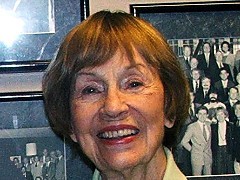By the time you joined the Country Music Association you were 34 years old. What did you do before and how did you get to run CMA?
"Before I joined CMA, my most previous job to CMA was doing PR for a man who was running for governor in the state of Tennessee, a man named G. Edward Friar. I worked for him for a couple of years. He was Secretary of State for Tennessee, but I didn't work for the state of Tennessee, I had a separate office by myself working on a campaign. He withdrew from the race before the primary in August in favor of mayor of Memphis."
"Then I stayed home for several weeks before I was approached to come to work for CMA. But apart from working for G. Edward Friar for governor, I worked for a company called Crescent Amusement Company. Crescent Amusement Company, we're talking about in the 50's, they owned 75 or 80 theaters in those days that were free standing theatres, not like we have today, the huge ones that can show lots of movies at the same time, they were free standing theaters. So they owned those and I worked there for 4 years as a secretary to the president of the company. And prior to that I had worked for a mortgage broker here in Nashville."
"Prior to that I had been in school. I grew up on a farm of a large family and when I graduated from high school, I went to college, I went to the Methodist Colllege in Lambuth University in Jackson, Tennessee and also to George Pebody College here in Nashville, which is a part of Vanderbilt University. I wanted to be a high school teacher of English and girls basketball coach."
"But circumstances changed that and I abandoned that career for various reasons and that's sort of how I came to work with the Country Music Association. I was its first employee and I knew nothing about country music. I had never been to the Grand Ole Opry. I'd heard of Minnie Pearl and Roy Accuff, Ernest Tubb and I'd heard of Hank Williams but I didn't delineate the different types of music. I didn't think about he's country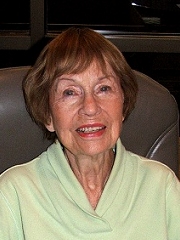 music. I knew I enjoyed as a young girl dancing to his music. And I knew that Minnie Pearl and Ernest and Roy, that they were members of the Grand Ole Opry. But I had never been to the Grand Ole Opry."
music. I knew I enjoyed as a young girl dancing to his music. And I knew that Minnie Pearl and Ernest and Roy, that they were members of the Grand Ole Opry. But I had never been to the Grand Ole Opry."
"So CMA, they had a board of directors just been elected several weeks before I was employed. They didn't want to hire someone who wanted to be a singer or who wanted to be a songwriter, but someone who would be an administrator, someone to come in, set up the office and do all the nitty gritty dirt work we called it. The first executive director was a man named Harry Stone. He had formerly been a manager of the Grand Ole Opry and vicepresident of the WSM radio. He was, I thought, a perfect person for that position, but he was only at CMA for a short time primarily because CMA didn't have the money to pay both of our salaries. Fortunately, I guess you'd say fortunately, my salary had been much less, so I was the one who got to stay and after a couple of years the board named me the executive director."
How many members did the Association have in 1958?
"About 200, probably by February we had the first organizational meeting of CMA. It was held during the Disc Jockey Convention and it was put on by WSM radio. They had the first organizational meeting where the first board of directors was elected and then they signed up the first members. Individual members could join for 10 dollars, lifetime members could join for 100. We had a list of 50 lifetime members and maybe somewhere around 200 members about the time I went to work there."
How did the Country Music Hall of Fame come to birth? I know the first inductees were announced in 1961, but I suppose it took some time to build and open the building.
"That's correct. The Country Music Association established the Country Music Hall of Fame in 1961 and elected people that first year and it was limited to deceased and it was Jimmie Rodgers, Hank Williams, Fred Rose and for the first few years the plaques honoring those people were displayed at the Tennessee State Museum because CMA didn't have a building."
"But the CMA board in 1964 chartered the Country Music Foundation, so I worked for both organizations. I was director of the Foundation as well as the Association from that time until 1971, when the two organizations were completely separated. We continued to have our offices and the Hall of Fame for another maybe two or three years before we moved out into another building and CMA didn't have its own building, this current building we're sitting in, until 1990. It started building in 1989. But then I retired from CMA in 1991, so I was actually actively working for CMA as Executive Director in this building for a relatively short time."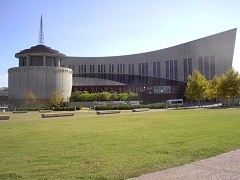
Who chooses the inductees?
"CMA does that and it's done by a nominating committee of 12 people who are elected by the CMA board and each serves 3 years and every year 4 of those people go off the board for new ones. They can serve 3 years and then they're off. They can be re-elected after they've been off for a period of time. Those 12 people meet and they nominate at least 10, they can nominate up to 20 people who, they feel, are eligible to be in the Hall of Fame. Then these nominees go out in the mail to a panel of electors. This panel of electors, I don't know how many there are at the time, when I was still here, there was about 300 people on the panel of electors, and they also are elected by the CMA board. There are numerous members of the CMA board who are not on the panel of electors and none of them is on the nominating committee."
"So, it's not a question if the CMA board can decide who's going to be elected to the Hall of Fame. This has always seemed to be a very fair process and it's pretty well been established that way from the very beginning and it seems to work quite well. It seems that sometimes the winners are much more popular among the whole country music world whether they're involved in it in a way or not than others. I think this year [2008] was one of the happiest, I mean the most people are happy about the people who have been elected."
"The rules have changed as to which categories they are through the years. Every year now two categories remain the same and that's people who have achiveved national prominence since World War II up to 1975 and then the other category that's the same very year those are artists who have achieved fame between 1975 and the present."
"Every third year a musician, that's a category for musicians to be elected, every third year there's a category for people who achieved prominence prior to World War II, that means prior to 1942, this year it was Pop Stoneman, he has a long history and his family that were plain at the time, won the first CMA Vocal Group at the first awards. And the other third year a non-performer person is elected. That's a category in which I was elected in 1995. It makes it a very slow process for those who are in the catogory every three years. There are usually only 3 people."
"At one point the CMA did elect about 10 people, but I don't know if they will do that again at some point to take in several people. Unless the board decided to do that, no doubt that people who deserve to be in the Hall of Fame will never make it. People who have been nominated many many times, some of them have actually been in Top 5, the finalists."
For example George Hamilton IV, he deserves it so much.
"I agree with you, he certainly does. I don't know which ones but I do know because of time that some of them will deserve it and will never be elected. It's quite sad I think, I can't do anything about that."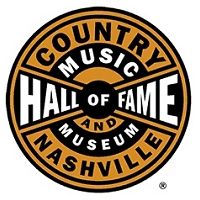
The first CMA Awards took place in 1967, which was one year after the first ACM Awards. Was there a lot of competition back then?
"Well, there was a certain amount. The ACM Awards weren't on television at that time. The CMA just kind of talked about giving awards but the general consensus was that they shouldn't give awards if you had 5 nominees and only 1 elected, then you make 1 happy and 4 unhappy. That was sort of that attitude of the board at that time. There was actually a man who was the publisher of Billboard was on the board in 1967. The trade magazines like Billboard, Cashbox and Record World, they all gave awards during the Disc Jockey Convention at the CMA week. And they gave them at the time at the record companies sponsored breakfasts, lunches and dinners presented their artists at shows during those times. And so the trade magazines gave their awards during one of those functions. The publisher of Billboard felt that the award would mean a lot more to come from the Country Music Association that it would from an individual trade magazine. He was a very strong member of the board and the board agreed with him to start giving awards."
Did all the artists recognize and appriciate both award shows from the very beginning, ACM and CMA?
"Yes, I think so. Especially once the ACM went on television because there weren't many opportunities in those days for country music artists to get national exposure on television. So yes, they wanted to be on that show, especially if they got to perform. Wining an award is as well important I think to some of them, but getting to perform, they would see quite an increase in the number of records sold after the show if they won an award or had an opportunity to perform."
How many people attended the very first Fan Fair in 1972?
"I don't know the exact number, but it was quite small, just a few thousand. Certainly less that 10, maybe even less than 5. That was 1972 and it was held in April, which was a big handicap because a lot of people that come, they have children and they're still in school and they can't come here for several days. It was sort if tied in with the opening of Opryland the first year in April. After that it was changed to June and the audience then began to grow. But it was a very small crowd in 1972."
Was the system of artists sitting at their booths and signing autographs introduced the very first year?
"I think s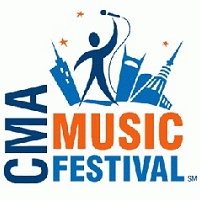 o, I can't answer that for sure. I have to research it a little bit. It's like it's always been there. But I can't say for sure that it was the first year. We were at the Municipal Auditorium downtown, which seated 10,000 people and we were there about 10 years and after that we moved to the Tennessee State Fair Grounds, which could seat 15,000 or more and then the neighbourhood of 15,000. By then a lot of artists had fan club events, breakfasts, lunches, evening events and different other things sprung up. For many years we could even though there were more than 15,000 people registered for the Fan Fair, they weren't always necessarily all at the fairground at the same time, so that helped to be able to stage it at the fairgrounds for several years."
o, I can't answer that for sure. I have to research it a little bit. It's like it's always been there. But I can't say for sure that it was the first year. We were at the Municipal Auditorium downtown, which seated 10,000 people and we were there about 10 years and after that we moved to the Tennessee State Fair Grounds, which could seat 15,000 or more and then the neighbourhood of 15,000. By then a lot of artists had fan club events, breakfasts, lunches, evening events and different other things sprung up. For many years we could even though there were more than 15,000 people registered for the Fan Fair, they weren't always necessarily all at the fairground at the same time, so that helped to be able to stage it at the fairgrounds for several years."
You retired in 1991 but apparently you are still active. How are you involved in CMA now?
"Right now I'm not even in any committees. Of course they've been kind to me, I attend a lot of their events, just about all of them. This Friday I'm going to an event that mostly is a staff thing. They are honoring different people for how many anniversaries, how many years they have been working for CMA. They have it scheduled on the Music City Queen, which is a showboat downtown. I always go to awards shows, I only missed one since it's been going. I was ill about 3 or 4 years ago and missed the show. In my 33 years with CMA, I never missed a board meeting. I missed only one and that was in 1961 when my father died. Other than that I was at all the board meetings. I had a wonderful career, I enjoyed the work every day. It was always something exciting."
Several years ago there was the infamous move to New York City. What did you think about the decision to move the awards show to New York?
"Well, I thought it was very good, very effective. I wouldn't want it to move there permanently or move there often, but I think it served a very good purpose and it got a lot of attention for country music and it gave a lot of country music fans an opportunity to see the show for the first time. The Madison Square garden was sold out. The mayor had a big reception at the Gracie Mansion and he participated on the show, they had banners all over the city. They also did a show 'Country Meets Broadway' when country artists sang with other stars and when they came back here, they had 'Broadway Meets Country' and some of the Broadway stars had a show at the TPAC downtown, so it's always something exciting going on with CMA."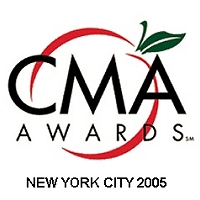
There's been some more changes through the years. The Fan Fair became the CMA Music Festival, but many people still call it Fan Fair. Is the name the only thing that changed about the festival?
"Well, it gave two venues for shows at the Riverfront Park and then the football stadium. So It gave an opportunity for many many more artists to perform and less current artists, who are still wonderful, have an opportunity to perform and it gave people a wide range of artists to see. So that's the main thing. There's still the exhibition area where artists go to sign autographs. And it's a lot more difficult to get around, it's all split up downtown."
"The fans very very much posed when we moved from the Municipal Auditorium years ago to the Tennessee Fair Grounds, they were unhappy, but once they got used to it, they loved it and they hated the move back downtown. I think since it changed the name and moved downtown, a lot of the older fans who would come every year from Ohio, Texas, Florida, some of them still come and they adjusted to it. You don't hear them complaining."
"I think it brought a lot more attention to country music whether they're current artists or older artists. I think everybody benefitted from that. A lot of the real hardcore fans did not like it, but it brought in a lot of new fans and appreciation from the older artists who are more or less on the vein of their career. It's very difficult to make everybody happy at the same time."
In the Czech Republic it's very unusual for people of my age to listen to country music and everybody keeps asking me why I love it so much. How would you explain your love for country music? Why do people like it so much over here?
"Well, if your mind is open to all types of music then anybody could like country music. They might not like all of it, but they can certainly like and appreciate some of it, because there is so much talent. And I think that a lot of people have never given it a chance. Some people happened to take to it certainly more quickly than others but I like it because there's variety of music. Generally speaking the artists are approachable, they show more concern for their fans. But the songwriters, the songs, most of them tell a story and I like that. I wanna understand. I don't like a song if I can't understand what it's about. I enjoy classical music, I listen to it even though there's no vocals to it, but I think you can appreciate any kind of music. It's just different people and I think the more knowledge you have of the music the more you can enjoy it."
"And country music is more down home, more warm fuzzy feeling. A lot of people feel they know the artist personally and I suppose that's true. And then there's the songs about love, lack of love, drinkin' but I don't there's that many songs about drinkin' today as in earlier years. They're just about what happens in life. They're down-to-earth, it's how we live, people can relate to these songs because it's about life. There's a lot of different types of country songs, but I think it's all how we live and we can relate to many of the songs."
Thank you very much for the interview.
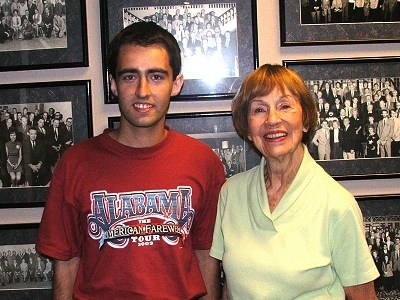
(C) Petr Mecir 2011. All rights reserved.




